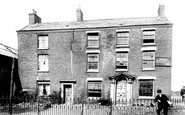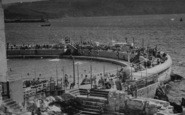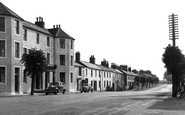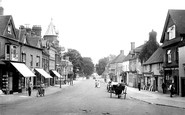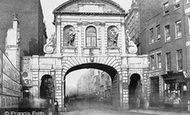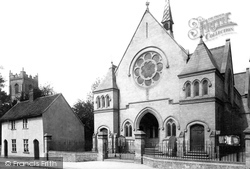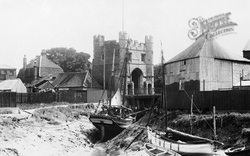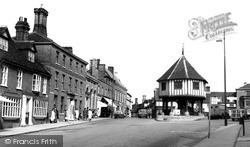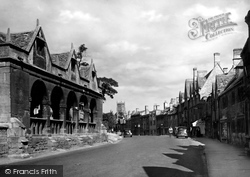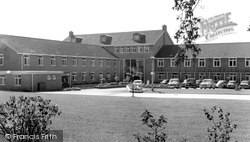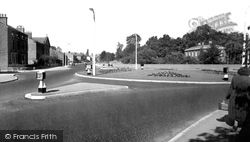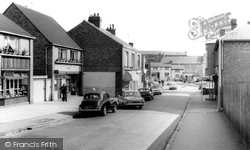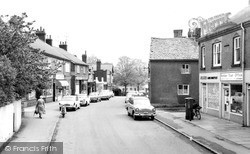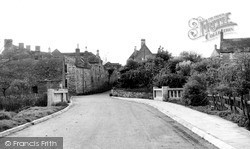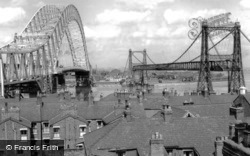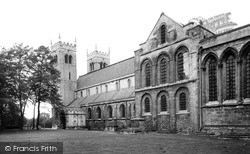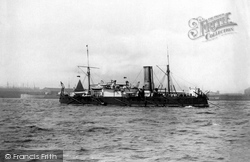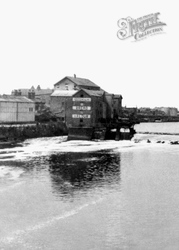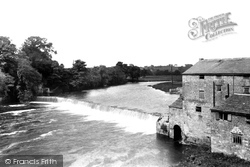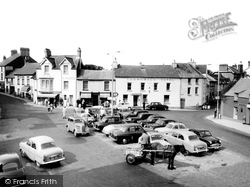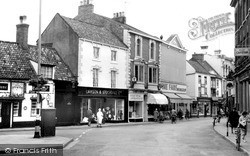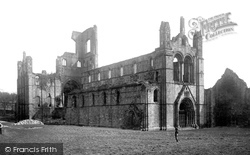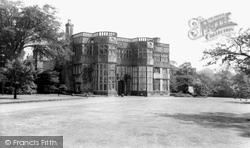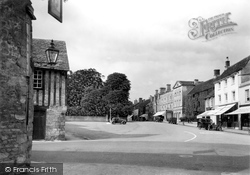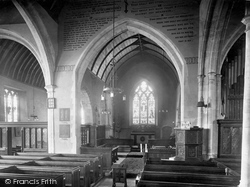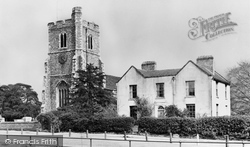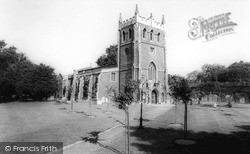Places
Sorry, no places were found that related to your search.
Photos
5 photos found. Showing results 981 to 5.
Maps
83 maps found.
Books
Sorry, no books were found that related to your search.
Memories
1,127 memories found. Showing results 491 to 500.
London Road
These 'crooked houses' existed until recently. A friend of mine lived in one of them. They occupied the opposite side of the road and just down from the old workhouse, and were probably shaken as much by traffic on the railway (about 100yards to the left of the picture) as anything.
A memory of Northwich in 1972 by
Long Warm Sunny Days
I was probably about 8 years old when this photo was taken, and I can clearly remember spending many summer days at the lido with my friends. I was talking to my granddaughter who is now 8 yrs old but living in Singapore, and so ...Read more
A memory of Plymouth by
Longtown High Street
My great-great grandfather was George 'Dood' McKie and he lived in a house about six doors beyond the Graham Arms Hotel which is shown in the Francis Frith photo number L203002. He was one of those Longtown characters who are ...Read more
A memory of Longtown in 1880 by
Looking For Friends
I am looking for my friend Rosemary Saundry, married to a William Williams, also Jeanette Saundry, married to a Michael Hurston, and their sister Mavis Saundry. And also Anne Polglaise. Could anyone give me information on these friends? Thank you so much.
A memory of Pengegon in 1956 by
Looking Back At My Life Growing Up, And Working In Fareham Plus More.
Leaving Southampton Road School in 1954, I started working on the outskirts of Titchfield for Sanders & Sons in their tomato glass houses, which was a good working start for me. ...Read more
A memory of Fareham by
Looking Down North Street
This picture is much the same as the previous one. The horse and carriage should be on the left side...but who cares, there's nothing coming up the right side. The Grammar School's tall oaks can be seen in the distant centre.
A memory of Midhurst by
Lost Love
I met my late wife Angela in Walkford in 1960 when we were both very young. I was on holiday on my motorbike with three of my pals, and she was on a bicycle. It was a hot August bank holiday. She lived in Heath Road and was very girlish ...Read more
A memory of Walkford in 1960 by
Lost In A Field
I remember coming across Temple Bar in a field in Enfield/Cheshunt whilst out for a walk as a child in the 1960s. It seemed such a strange place for it to end up. There were no explanatory signs to say what it was and why it was ...Read more
A memory of London in 1968 by
Lost Memory
Hi, does anybody remember the Coxall family; Violet, William and children Leonard and Ronald. They lived in Spencer Grove, Stoke Newington. They lived here in 1940s. Anything on this family would be much appreciated. I know that ...Read more
A memory of Hackney by
Lower Hyde Farm 66
I too stayed at Lower Hyde Farm on many occasions as a child and remember arriving on the day of the 19966 World Cup final. We listened to the match on another passenger's transistor radio, standing in the guards's van on the ...Read more
A memory of Shanklin in 1966 by
Captions
1,233 captions found. Showing results 1,177 to 1,200.
The left door of the house to the left has become a window, the two windows have been shortened, and the Gothic arch of the other door has been removed.
Silting of the Ouse's ponderous waters robbed the town of much of its former prestige as a seaport, but its many graceful buildings and old Custom House have brought to it the appella- tion
The fine half-timbered octagonal market cross, resting on timber stilts and stone arches, was built in 1605 after a fire destroyed a good proportion of the town.
The arched building in the left foreground is the Market Hall, which was built in 1627 at the expense of Sir Baptist Hicks.
Much of this remarkable building has been demolished over the past decade to accommodate a not particularly complimentary flat conversion.
It looks much the same today, with attractive flower- beds, although it has been reduced in size to aid the flow of the traffic.
Much red brick building of the 19th century intruded into the village scene as industry spread from Leicester, including the impressive backdrop of factory buildings we see here.
The shop fronts in the left-hand row have retained much of their original quality, but Flair, the ladies' hairstylist (right), has made the alterations which were regrettably to become
This later 17th-century house is unattributed, but it does have much in common with Lyndon Hall, designed by John Sturges in 1668.
The road bridge had taken four years to build, and was very much needed by the time it opened. Sunday and holiday traffic heading to and from North Wales could take up to two hours to cross.
The half-timbered octagonal market cross, resting on timber stilts and stone arches, was built in 1605 after a fire destroyed a good proportion of the town.
The transepts with their two storeys of arches date from the 1920s and 1930s, while a modern central tower with a slender spire and a choir was erected from 1966 to 1974 by Laurence King.
In 1890 she could manage 12.2 knots, though she was much happier doing ten; but by 1895 her speed seems to have been reduced to an asthmatic 8.4 knots.
The company still occupies the mill, but the water wheel that provided so much power turned for the final time in 1973.
This new three-arch bridge was completed in 1804 at a cost of £24,864; on the central parapet are the names of the then 74-year-old architect John Carr and the builder, Bernard Hartley of Pontefract
Lord Haw Haw heard this, and broadcast that HMS 'Cabot' had been sunk - much to the amusement of the locals.
This is not so much of a square as a roundabout these days. There is no car parking today, but a busy road junction with a cannon in the centre.
This street scene has not changed very much except for the names of the occupants.
North presented the Abbey to the city, and after much restoration it was opened to the public.
The Council look after it well, and there is much to see in this fine old building.
Although very much a stone-built place, it lacks the Cotswold atmosphere of the settlements on the high wold.
The Jacobean oak pulpit of c1630 was found in the tower arch covered in white paint, and was placed in its present position during the restoration of the church in 1851.
Broxbourne's parish church of St Augustine is much larger than St Paul's.
At the Dissolution, the nave was demolished and the western arch of the tower was filled in. The people of the town bought the remains of the original building, and it then became the parish church.
Places (0)
Photos (5)
Memories (1127)
Books (0)
Maps (83)

